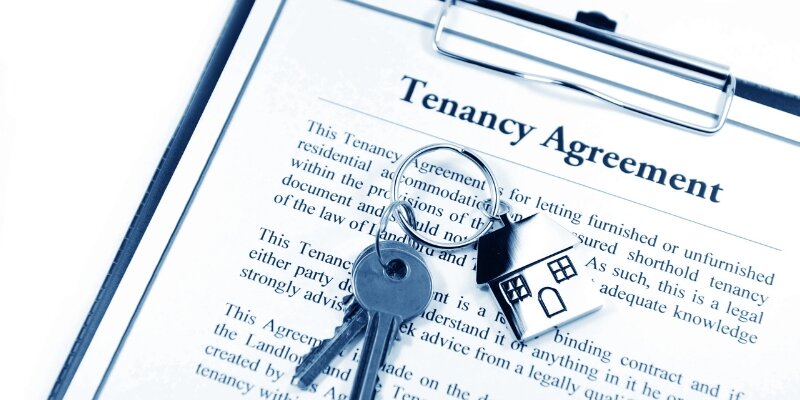
Legal procedures can be daunting for landlords dealing with tenants who refuse to vacate their property. Knowing your rights and taking the correct steps is crucial in such situations to ensure a smooth and lawful eviction process. In this informative blog post, we will outline necessary steps and provide valuable tips to help landlords navigate through the challenging process of dealing with tenants who are unwilling to vacate.
Key Takeaways:
- Know Your Rights: Familiarize yourself with the local landlord-tenant laws and regulations to understand your rights and obligations as a landlord.
- Communicate Clearly: Clearly communicate with the tenant about the issue and the necessary steps for vacating the property, ensuring all communication is documented in writing.
- Seek Legal Assistance: If the tenant refuses to vacate, consider seeking legal assistance to navigate the eviction process according to the laws in your jurisdiction.
Legal Preparations
Even in challenging situations where tenants refuse to vacate, landlords must navigate the legal process carefully. It’s important for landlords to be aware of their rights and obligations under the law, especially with recent developments such as landlords finding ways to evict after getting rental aid. For more information on this topic, check out this article on landlords finding ways to evict after getting rental aid.
Familiarizing with State Laws
On the path to dealing with non-compliant tenants, it’s crucial for landlords to familiarize themselves with the specific laws and regulations governing eviction in their state. Understanding the legal requirements and processes can help landlords proceed with confidence and ensure that their actions are within the bounds of the law.
Other Articles You Might Enjoy:
- Essential Steps To Deal With Late Or Unpaid Rent – Help For Landlords With Bad Tenants
- Essential Tips For Landlords Dealing with Rental Property Damage
- Help For Landlords – What To Do When Lease Terms Are Violated
- Steps For Landlords Facing Tenants Who Refuse To Vacate
- Preventing Subletting Without Permission – Help For Landlords With Bad Tenants
Documentation and Record-Keeping
With the potential for disputes or legal challenges, thorough documentation is imperative for landlords facing tenants who refuse to vacate. This includes keeping records of all communication with the tenant, lease agreements, payment history, and any relevant notices served to the tenant. Having a well-documented paper trail can strengthen a landlord’s case in eviction proceedings and help protect their rights as property owners.
This chapter emphasizes the importance of legal preparations for landlords facing tenants who refuse to vacate. By familiarizing themselves with state laws and maintaining detailed documentation, landlords can navigate the eviction process effectively and protect their interests.
Communication Strategies
Initial Tenant Engagement
To effectively address tenants who refuse to vacate, it is crucial to initiate communication promptly and clearly. Clearly state the issue at hand and communicate any potential consequences if they do not comply with the terms of the rental agreement. Document all interactions for future reference.
Structured Negotiation Techniques
With resistant tenants, structured negotiation techniques can be extremely beneficial. Start by setting up a formal meeting to discuss the situation calmly and professionally. Listen to their concerns and try to find common ground. Clearly outline the steps that need to be taken for them to vacate the property voluntarily.
Structured negotiation techniques involve outlining a timeline for the tenant to vacate, discussing any outstanding financial obligations, and laying out the consequences of non-compliance. This approach can help both parties come to a mutually beneficial agreement and avoid legal action.
Strategies
Successful communication strategies with tenants who refuse to vacate require a combination of clear and direct communication, empathy, and a structured approach to negotiation. By setting clear boundaries, outlining expectations, and listening to the tenant’s concerns, landlords can improve the chances of a smooth resolution to the situation.

TX Cash Home Buyers Gives Multiple Offer Options!
Unlock the potential of your home with our multiple offer options. Discover what you qualify for an make informed decisions with confidence.
Formal Eviction Procedures
Unlike What To Do If You’re Facing Eviction, landlords facing tenants who refuse to vacate have specific legal procedures to follow. It is crucial to understand the formal eviction process to ensure that all actions are taken in accordance with the law.
Issuing a Proper Notice
Formal eviction procedures typically begin with issuing a proper notice to the tenant. This notice should clearly state the reason for the eviction, the time frame given for the tenant to vacate the property, and any actions that can be taken to remedy the situation. It is vital to follow the specific guidelines set forth by your state and local laws when drafting and delivering this notice.

Filing an Eviction Lawsuit
Formal eviction procedures may progress to filing an eviction lawsuit if the tenant fails to comply with the initial notice. Landlords must file the necessary paperwork with the court and ensure that the tenant is properly served with the summons and complaint. The tenant will have the opportunity to respond to the lawsuit, and a hearing will be scheduled to determine the outcome.
With the guidance of legal counsel, landlords can navigate the complexities of filing an eviction lawsuit. It is vital to gather all relevant documentation, such as the lease agreement, communication with the tenant, and records of any violations or breaches of contract. By following the formal procedures outlined by the law, landlords can protect their rights and take the necessary steps to regain possession of their property.

Why Sell Your House To TX Cash Home Buyers?
1. You Pay Zero Fees
2. Close Quickly or the date of your choice
3. Guaranteed Offer
4. No repairs required, we buy as is
5. Less Hassles!
Call Now (281) 595-7550 Send Text
Post-Eviction Considerations
Handling Abandoned Property
Considerations may arise when dealing with abandoned property left behind by tenants. Before disposing of any belongings, check local laws and regulations regarding the proper process for handling abandoned possessions. Document the condition of the items and store them in a safe place to protect yourself from any potential claims of property damage or theft.
Preparing the Property for Re-rental
Considerations when preparing a property for re-rental include thoroughly inspecting the premises for any damages or necessary repairs. It is important to address any safety hazards and ensure that the property meets all legal requirements for rental properties. Additionally, cleaning and refreshing the unit can help attract potential tenants and maximize rental income.
Another important step is to update the property’s listing with accurate information and attractive photos to showcase its best features. Consider setting a competitive rental price based on market rates and conducting thorough background checks on prospective tenants to find reliable occupants for your property.

1. Understand tenant rights and eviction laws in your area. 2. Try to negotiate a peaceful resolution with the tenant. 3. Serve proper eviction notice in accordance with local regulations. 4. Seek legal advice or hire an attorney if necessary. 5. File for eviction through the court system. 6. Follow proper procedures to avoid potential legal issues.
Conclusion
Upon reflecting on the steps for landlords facing tenants who refuse to vacate, it is crucial to approach the situation with knowledge and confidence. By following the legal process, documenting all communication and incidents, seeking legal advice when necessary, and staying firm on your rights as a landlord, you can effectively handle tenants who refuse to leave your property. Do not forget, landlord-tenant disputes can be challenging, but with the right approach and assistance, you can navigate through the situation successfully.
FAQ
Q: Is it legal for tenants to refuse to vacate the rental property?
A: Tenants refusing to vacate the rental property are in violation of the lease agreement and can be subject to legal eviction by the landlord.
Q: How can landlords initiate the eviction process against tenants who refuse to vacate?
A: Landlords can start the eviction process by issuing a formal notice to the tenants, followed by filing for eviction in court if necessary.
Q: What are the rights of landlords when dealing with tenants who refuse to vacate?
A: Landlords have the right to enforce the terms of the lease agreement, evict non-compliant tenants, and seek legal recourse for any damages or losses incurred.
Q: How can landlords protect themselves from tenants who refuse to vacate in the future?
A: Landlords can protect themselves by creating a thorough lease agreement, clearly outlining eviction procedures, and staying informed about landlord-tenant laws in their state.
Disclaimer:
The content provided on this blog is for informational purposes only. We are not attorneys or tax professionals. For personalized legal or tax advice, please consult with a qualified professional.
Written by Lisa Martinez, Founder of TX Cash Home Buyers

About The Company
TX Cash Home Buyers helps Texas homeowners sell quickly and simply — even in tough situations like repairs, inherited homes, or financial stress. Founded by Lisa Martinez, we’re known for our local experience, fair offers, and commitment to guiding sellers through off-market sales with clarity and care.




